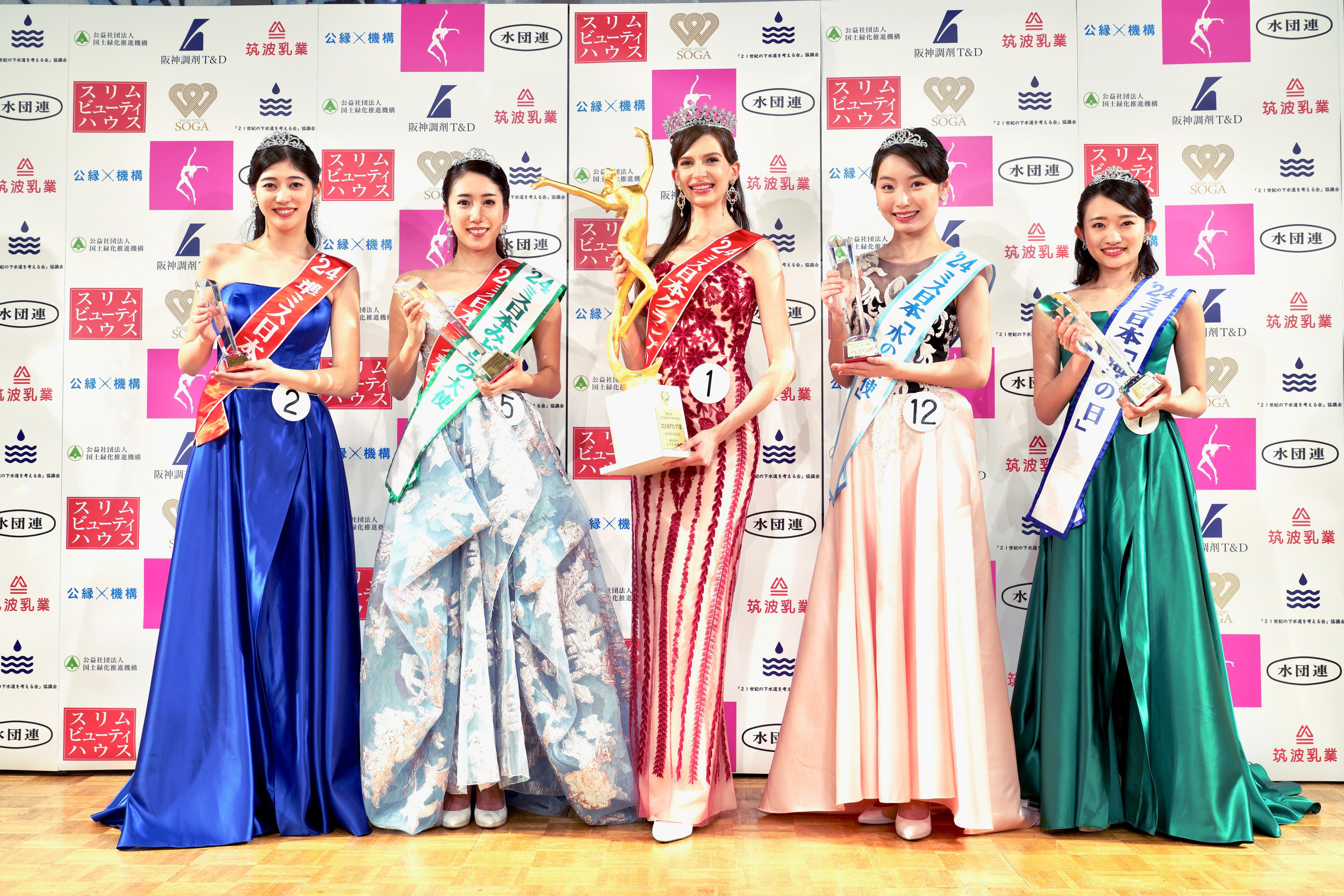Ukrainian-born Miss Japan rekindles an old question: What does it mean to be Japanese?
Crowned Miss Japan this week, Ukrainian-born Karolina Shiino cried with joy, thankful for the recognition of her identity as Japanese

Your support helps us to tell the story
From reproductive rights to climate change to Big Tech, The Independent is on the ground when the story is developing. Whether it's investigating the financials of Elon Musk's pro-Trump PAC or producing our latest documentary, 'The A Word', which shines a light on the American women fighting for reproductive rights, we know how important it is to parse out the facts from the messaging.
At such a critical moment in US history, we need reporters on the ground. Your donation allows us to keep sending journalists to speak to both sides of the story.
The Independent is trusted by Americans across the entire political spectrum. And unlike many other quality news outlets, we choose not to lock Americans out of our reporting and analysis with paywalls. We believe quality journalism should be available to everyone, paid for by those who can afford it.
Your support makes all the difference.Crowned Miss Japan this week, Ukrainian-born Karolina Shiino cried with joy, thankful for the recognition of her identity as Japanese. But her Caucasian look rekindled an old question in a country where many people value homogeneity and conformity: What does it mean to be Japanese?
Shiino has lived in Japan since moving here at age 5 and became a naturalized citizen in 2022. Now 26, she works as a model and says she has as strong a sense of Japanese identity as anyone else, despite her non-Japanese look.
“It really is like a dream,” Shiino said in fluent Japanese in her tearful acceptance speech Monday. "I’ve faced a racial barrier. Even though I’m Japanese, there have been times when I was not accepted. I’m full of gratitude today that I have been accepted as Japanese.”
“I hope to contribute to building a society that respects diversity and is not judgmental about how people look," Shiino said.
But her crowning triggered a debate over whether she should represent Japan.
Some people said on social media that it was wrong to pick a Miss Japan who doesn't have even a drop of Japanese blood even if she grew up in Japan. Others said there was no problem with Shiino's crowning because her Japanese citizenship makes her Japanese.
Japan has a growing number of people with multiracial and multicultural backgrounds, as more people marry foreigners and the country accepts foreign workers to make up for its rapidly aging and declining population.
But tolerance of diversity has lagged.
Chiaki Horan, a biracial television personality, said on a news program Thursday that she was born in Japan and has Japanese nationality, yet has often faced questions of whether she is really Japanese or why she is commenting on Japan.
“I've learned that there are some people who require purity of blood as part of Japanese-ness,” she said. “I wonder if there is a lack of an understanding that there may be people of diverse roots from different places if you just go back a few generations.”
Shiino is only the latest to face the repercussions of questions over what constitutes Japanese.
Ariana Miyamoto, a native of Nagasaki who has a Japanese mother and an African American father, also faced fierce criticism when she was chosen to represent Japan in the Miss Universe pageant in 2015.
When tennis star Naomi Osaka lit the Olympic cauldron at the opening ceremony of the Tokyo Games in 2021, she was lashed by nationalists on social media for not being “pure Japanese," though she was also warmly welcomed by many.
Growing up, Shiino said she had difficulty because of the gap between how she is treated because of her foreign appearance and her self-identity as Japanese. But she said working as a model has given her confidence. “I may look different, but I have unwavering confidence that I am Japanese,” she said.
___
AP video journalist Ayaka McGill contributed to this report.